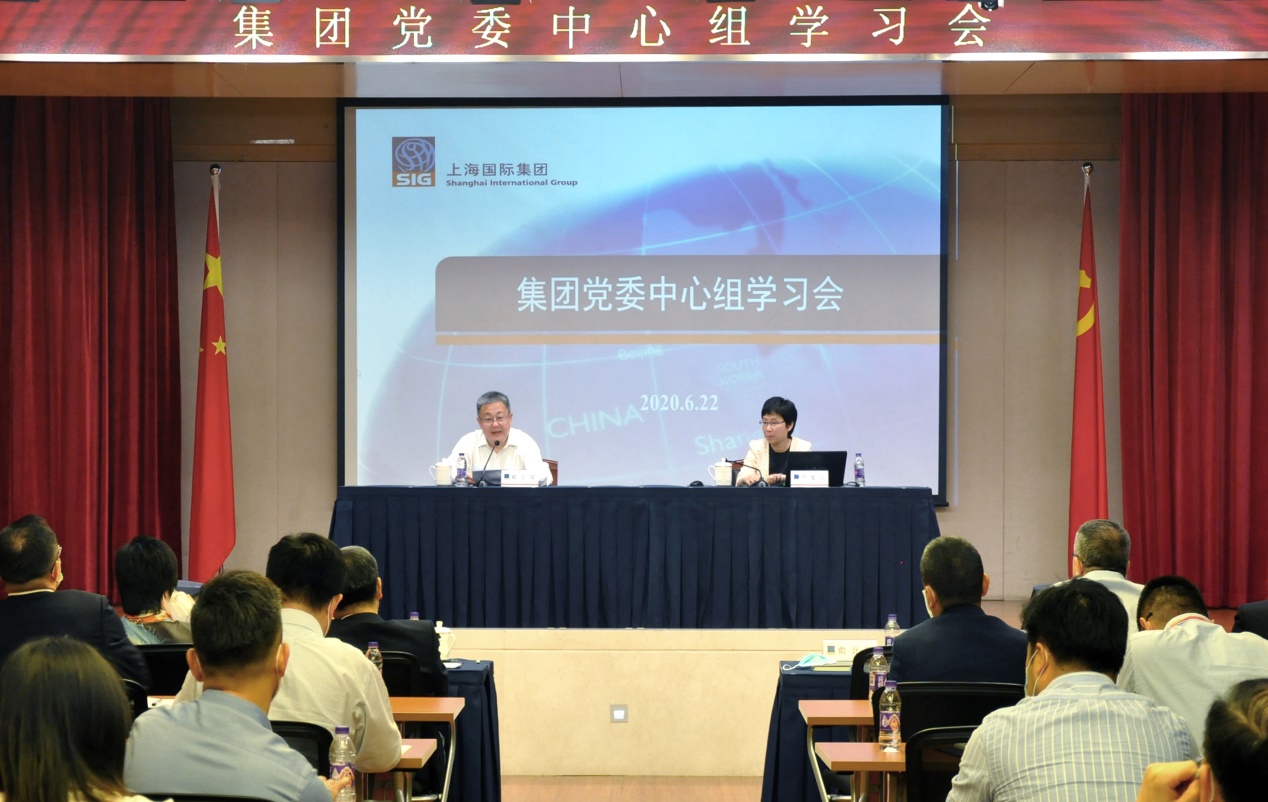Learning Party History, Clarifying Responsibilities, Emphasizing Implementation, Valuing Responsibility Performance: CPC SIG Committee Organizes Central Group Workshop on "Four Histories" Learning & Education
- Recent reports
-
2023-04-28
Strengthening the Fulfillment of Responsibilities, Eliminating Potential Hazards: SIG Conducts Safety Inspection before "May Day" Holiday
Learn more
-
2023-04-27
Nearly 100 Invested Enterprises of SSC Selected into Global Unicorn Index 2023
Learn more
-
2023-04-26
Seizing Opportunity, Recording Lowest Coupon Rate, Enhancing Market Visibility: SSAM Successfully Issues First-Tranche MTNs in 2023
Learn more
To implement the work arrangements of the CPC Central Committee, the CPC Shanghai Municipal Committee and the Shanghai Municipal State-owned Assets Supervision and Administration Commission (SHSASAC) for "four histories" learning and education, further consolidate the results of education themed "Staying true to the mission", educate and guide Party members and executives in constantly deepening the understanding of the Party's original mission, as required by SIG's implementation plan for "four histories" learning and education, SIG organized a central group study workshop on "four histories" learning and education on the afternoon of June 22, inviting Yan Aiyun, Director of the Party History Research Office of the CPC Shanghai Municipal Committee and a member of the Expert Presentation Group on "Four Histories", to deliver a lecture entitled "Learning Four Histories, Loving the Party and Clarifying Responsibility: Seeing the History of Struggle of the CPC Dating Back Nearly 100 Years from Shanghai". Yu Beihua, Secretary of the CPC SIG Committee and Chairman of the Board of Directors, hosted the workshop. SIG's leaders, the chairman of the Board of Supervisors of SIG, executives of SIG's headquarters and subsidiaries above the assistant level, secretaries of SIG's grass-roots (general) Party branches, employees of SIG's headquarters and subsidiaries that are Party members attended the workshop at the venue and sub-venues.

With rich historical records, vivid cases and mass research findings, from four perspectives (Shanghai, a place where the CPC established its original mission; Shanghai, a vivid example of the Party serving public good and governing for the benefit of the people; Shanghai, an epitome of the great achievements of socialism with Chinese characteristics; staying true to the mission and carrying forward the fine tradition), Yan introduced Shanghai's unique role in the CPC's history dating back nearly 100 years, and elaborated on the Party's history of struggle and development, Shanghai's precious experience in the reform and opening-up, as well as CPC members' mission and responsibility.
Yu raised three requirements to the SIG for carrying out "four histories" learning and education in depth: Firstly, SIG should perform responsibilities. "Four histories" learning and education is an important work arrangement of the Party this year. The CPC SIG Committee has made specific arrangement for "four histories" learning and education, established a leading group and office, and worked out the implementation plan and schedule. Secretaries, Party members and executives of the CPC SIG Committee, CPC committees (branches) of SIG's subsidiaries and grass-roots Party organizations should, as required by SIG's implementation plan for "four histories" learning and education, practically perform respective responsibilities to ensure the implementation of learning and education requirements. Secondly, SIG should base "four histories" learning and education on facts. SIG's Party organizations at all levels should make full use of rich red resources and precious spiritual health accumulated by Shanghai as the birthplace of the CPC and the forefront of the reform and opening-up, create innovative learning forms, and improve learning and education effects in "four histories" learning and education. Lastly, SIG should seek practical results. SIG should guide practices by theories, closely integrate "four histories" learning and education with its central work of reform and development, guide Party members in firming up Party spirit and the awareness of mission, deepen the function of state-owned assets operation platforms with focus on major national and municipal strategies, advance the pilot building of financial holding groups, improve the level of active investment, push forward the system and mechanism reform of marketization, comprehensively fulfill annual tasks and targets, and promote the high-quality development of SIG.
Following the workshop, SIG's leaders and heads of Party organizations of SIG's subsidiaries exchanged ideas on "four histories" learning and education.




